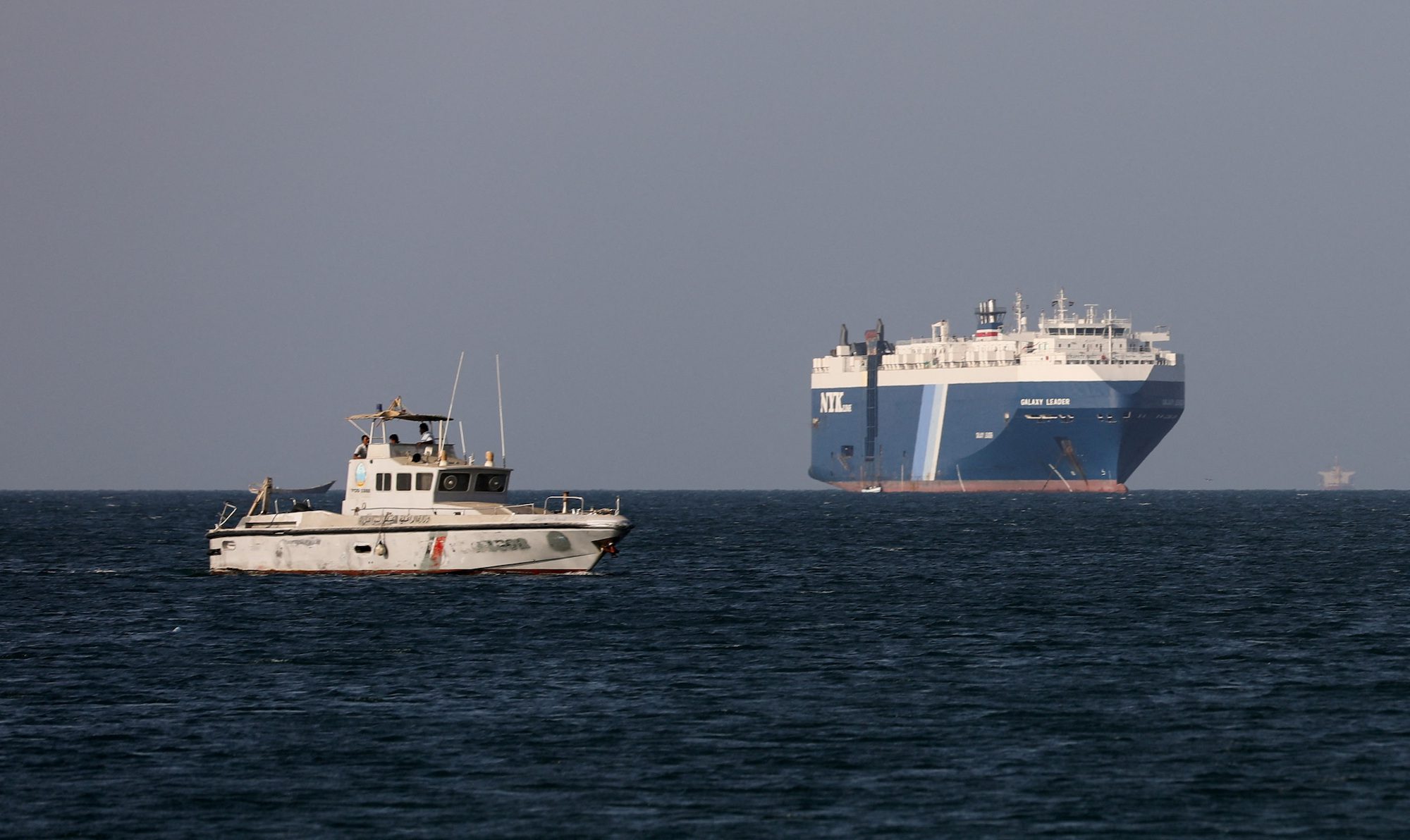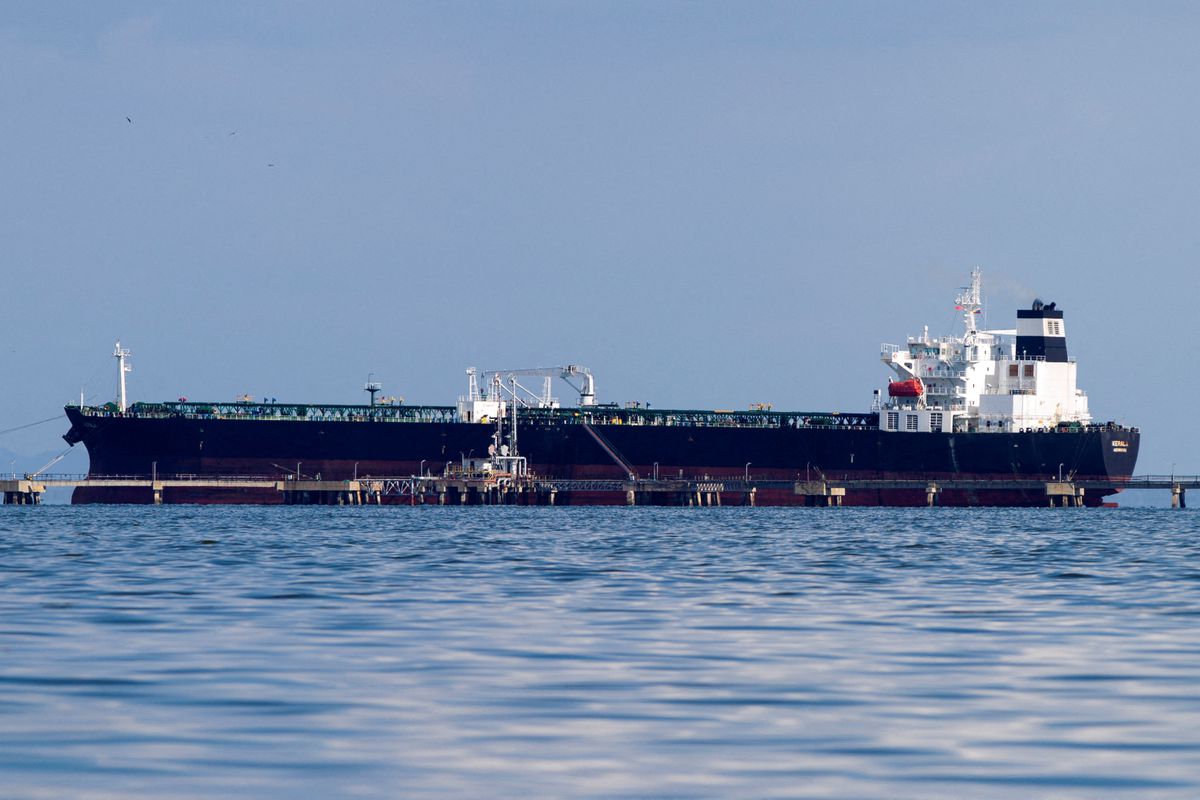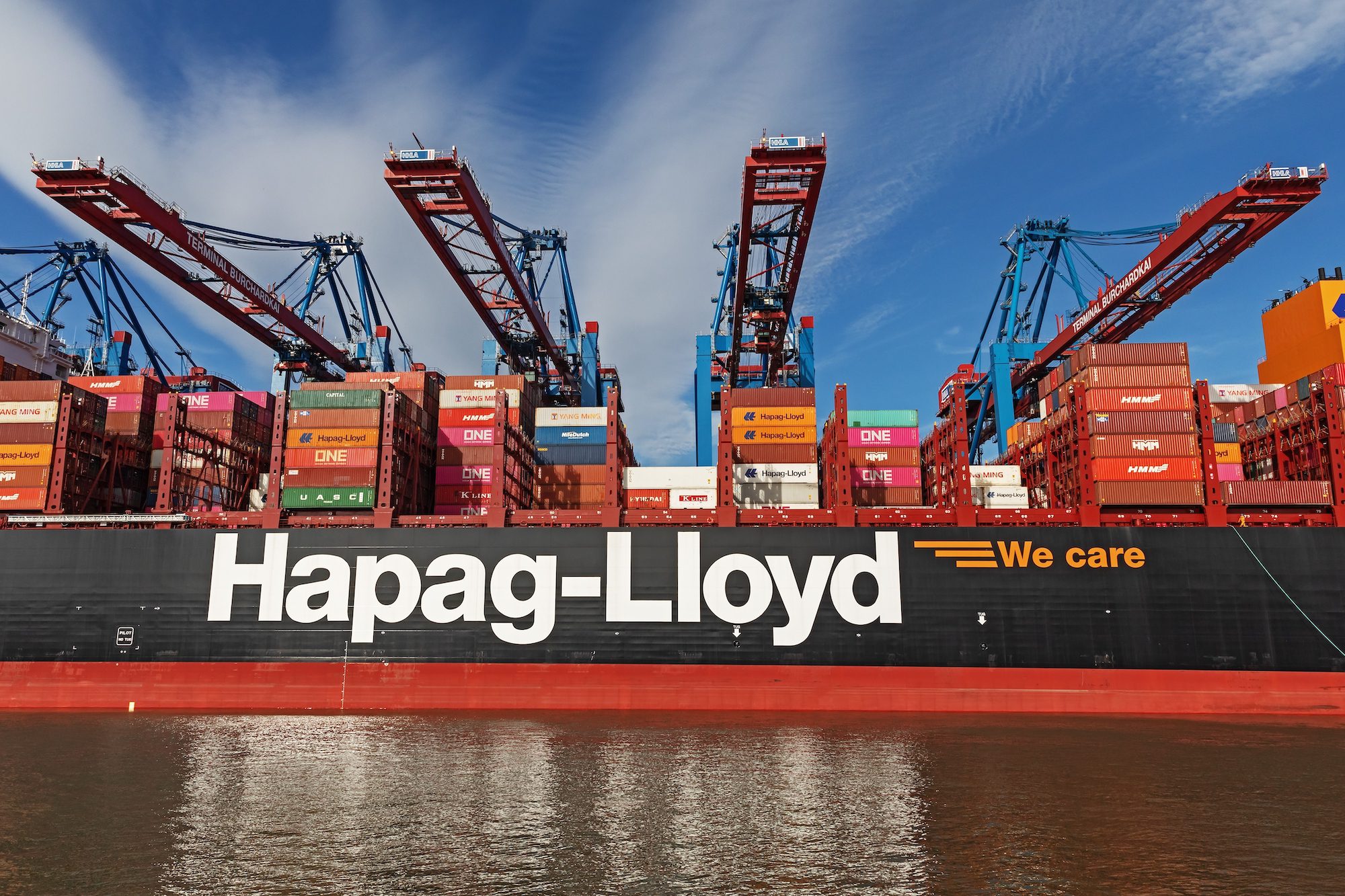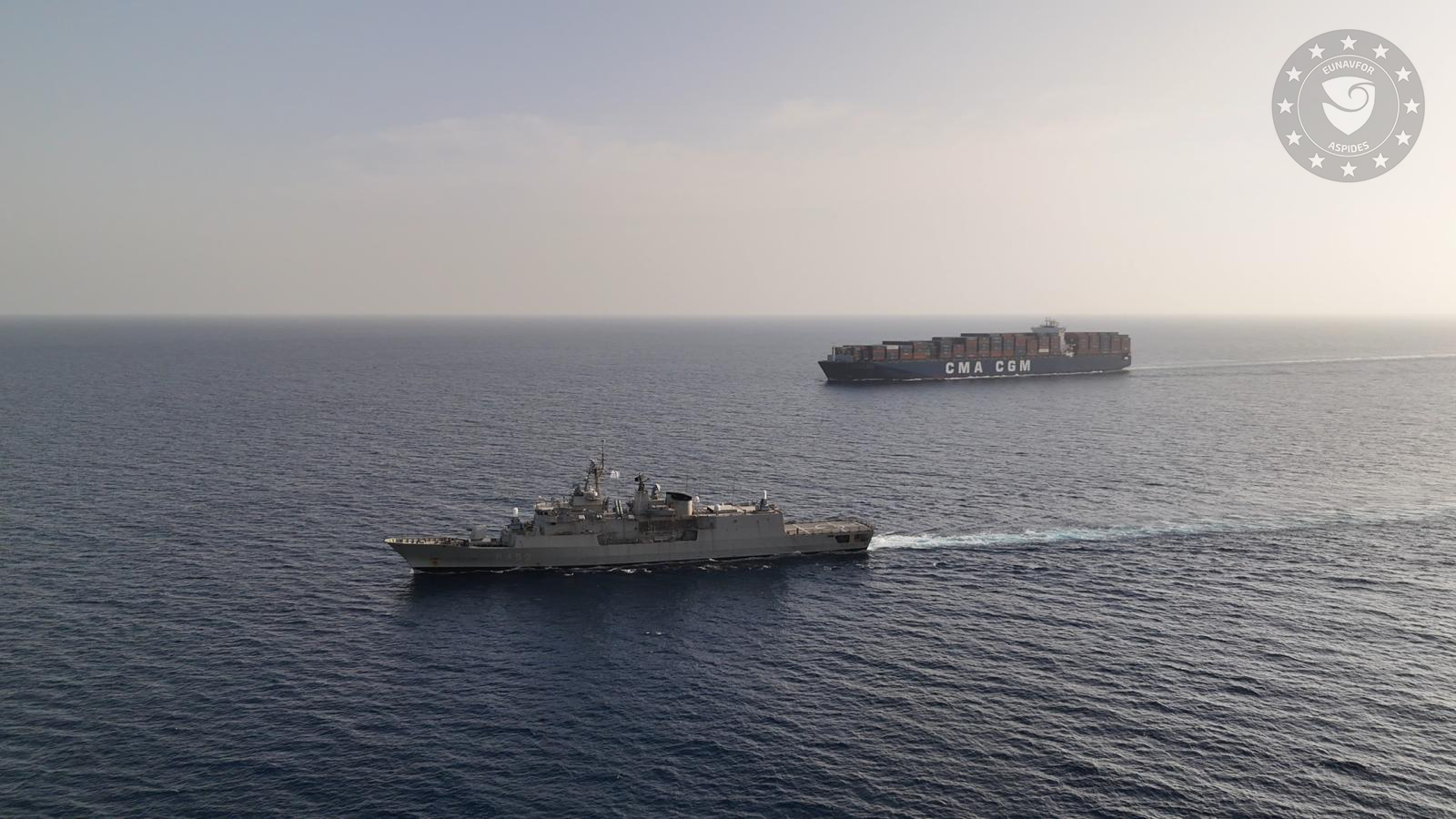An escalation of attacks against Red Sea shipping by the Iran-backed Houthi militant group in Yemen has led to shipping giants pausing Red Sea voyages, changes in marine insurance, and calls for an international response. Here’s a rundown of everything you may have missed over the weekend:
Suspended Voyages
Last week’s attack on the Maersk Gibraltar and Maersk’s decision to pause Red Sea voyages has had a cascading effect on shipping with many major shipping companies announcing Red Sea suspensions. Companies such as BP, CMA CGM, Equinor, Euronav, Evergreen, Frontline, Hapag-Lloyd, Maersk, MSC, OOCL, and Yang Ming Marine Transport have announced either paused shipping through the Red Sea or rerouted vessels due to safety concerns.
New Attacks
The United Kingdom Maritime Trade Operations (UKMTO) reported a series new incidents on Monday. According to the UK-based EOS Risk Group, there have been at least four new incidents today alone including attacks against the containership MSC Clara and the Norwegian-owned Swan Atlantic tanker as claimed by the Houthis. The U.S. Central Command later confirmed that a Houthi ballistic missile struck the Swan Atlantic tanker and separate attack on MSC Clara, which ultimately missed the ship.
Over the weekend, the MV Al Jasrah and M/V Platinum 3 were confirmed to be attacked early Saturday morning (local time) by Houthi forces, following a warning to the M/V MSC Alanya to change course. No injuries were reported, and the ships are now safe. The Al JasrahH and Platinum 3 experienced fires caused by the attacks, but the fires have been extinguished and no further assistance is needed, according to the U.S. Central Command.
BIMCO and ICS
BIMCO, the world’s largest international shipping association, and the International Chamber of Shipping have condemned the unlawful attacks on international shipping by the Houthis, calling for joint efforts to protect seafarers and the freedom of navigation.
BIMCO is urging nations to work together to protect shipping and ensure the safety of seafarers. It says the recent unlawful attacks on ships are a violation of the freedom of navigation and undermine the rules-based international order.
The International Chamber of Shipping (ICS) issued a statement saying it strongly condemns the actions of the Houthis and calls for an immediate cessation of attacks on seafarers and merchant ships. It also said the attacks are a violation of international law and pose a serious threat to international trade, causing some companies to rerout their ships, which adds cost and delays to global trade. The ICS also praises naval forces for their intervention and urges further commitments to protect seafarers and merchant shipping.
Marine Insurers Widen High Risk Zone
London’s marine insurance market has expanded the high risk zone in the Red Sea due to the increased attacks on commercial ships. The Joint War Committee widened the zone from 15 degrees north to 18 degrees north, influencing insurance premiums.
‘Operation Prosperity Guardian‘
U.S. Defense Secretary Lloyd Austin on Monday officially announced the initiation of Operation Prosperity Guardian (OPG), a 10-nation maritime security initiative aimed at safeguarding international ships from Houthi attacks. This comes after a “drone wave” was launched from Yemen over the weekend, prompting the USS CARNEY to successfully engage and shoot down 14 unmanned aerial systems with no reported damage or injuries.
Naval Assets
Carrier Strike Group 2, led by USS Dwight D. Eisenhower, has reportedly departed the Arabian Sea and is heading towards the Gulf of Aden off the coast of Yemen. The U.S., France, Britain, and Japan already have ships in the region.
Egypt Reports Ships Rerouting
Egypt’s Suez canal authority said on Sunday that 55 ships have rerouted via the Cape of Good Hope since November 19, while 2,128 have crossed the canal in the same period, the authority said.
M/V Ruen Hijacking in Indian Ocean
The European Union’s Somali counter piracy force, EUNAVFOR, is currently monitoring the hijacking of a bulk carrier in the Indian Ocean several hundred miles off the coast of Somalia. The ship, the M/V Ruen, has since arrived off the coast of Somalia, but the situation on board remains unknown. If confirmed, this would be the first successful hijacking by Somali pirates since 2017. However, the motivations behind the attack and any possible connections to the Houthis are currently unknown.
Mediation Talks
Yemen’s Houthis are reportedly engaging in talks mediated by Oman with “international parties” regarding their ongoing operations in the Red Sea and Arabian Sea. The spokesman reiterated their intention to target Israeli vessels or ships heading to Israel until the aggression and siege on Gaza end, in response to the Gaza war.
Industry Reactions
Industry stakeholders predict longer lead times, potential increases in freight rates, and disruptions to supply chains. Statements from shipping industry stakeholders and organizations, compiled in part by Reuters, are below:
JOHN KARTSONAS, MANAGING PARTNER OF BREAKWAVE ADVISORS:
“A number of shipping companies are diverting ships away from the Red Sea region due to the risk. That can change at any given time if military forces get involved, so again difficult to assess.
“The impact for now in shipping is small because it is too early. If that persists for weeks or months, we should start feeling the impact on higher freight costs, potential delays in deliveries of goods and commodities and overall higher delivered prices.
“The impact will be bigger on container ships, followed by tankers and lastly dry bulk.
“The overall trade numbers through the Suez canal are relatively small as a percent of global trade, but it is the duration of any disruption that matters.”
ZVI SCHREIBER, CEO OF GLOBAL FREIGHT PLATFORM FREIGHTOS:
“What would be different this time (compared with 2021) if there is a widespread diversion from the Suez is the excess capacity available to address the disruption.
“In 2021, there were no extra available ships to take the place of delayed vessels at origin ports. This time, there is a record level of excess capacity.
“So, shippers could expect longer lead times due to longer voyages, but operations should continue reasonably well. Freight rates will likely increase on these longer voyages too, but due to carriers looking for ways to utilize excess capacity, it is unlikely that rates will spike to levels experienced during the pandemic.”
PETER SAND, CHIEF ANALYST AT OCEAN FREIGHT SHIPPING DATA AND INTELLIGENCE PLATFORM XENETA:
“The ocean freight industry has been deeply scarred by Ever Given (in 2021) and is frankly terrified of any situation which threatens the closure of the Suez Canal.
“Due to the importance of the Suez Canal to global supply chains, even a small disruption can have big consequences.
“We may also see the cost of moving freight by ocean increase dramatically. Depending on the scale and duration of any disruption at the Suez Canal, we could see ocean freight shipping rates increase by anything up to 100%.”
LARS JENSEN, CONTAINER SHIPPING ADVISOR AT VESPUCCI MARITIME:
“A lot of new container shipping capacity has entered the market this year. There is no shortage of ships now, so even if this drags out, it won’t be catastrophic for supply chains.”
“A lot of goods are produced in China leading up to the Chinese New Year, creating extra pressure on the shipping industry to export those good. But some of the ships that would be needed there in January, are now paused or going around Africa, which means they may not make it back to China in time.”
MARCO FORGIONE, DIRECTOR GENERAL AT THE INSTITUTE OF EXPORT AND INTERNATIONAL TRADE:
“This is going to have a significant impact on all the retailers, particularly if we look at the build-up to Chinese New Year.
“The goods need to be in the shops at the right point of time in the season. So if you miss that season, the goods aren’t relevant to the marketplace.
“So you then have the risk that the big retailers or big brands have got stock that is pretty much of no value, and they need to be able to recoup that down the line. This has the potential to turn the clock back to what happened during the lockdowns.
“Container rates are going to go up, the cost of insurance is going to go up, all of this has an impact on the price point for the consumer.”
ABN AMRO ANALYST ALBERT JAN SWART:
“Wholesalers, retailers and manufacturing firms are still unwinding excess inventories at the moment, so I do not expect severe shortages or extremely high freight rates like during the pandemic.”
ING ANALYST RICO LUMAN:
“This will at least lead to delays in late December, with knock-on effects in January and probably February as the next round will also be delayed.
“The disruption could lead to a renewed rise in spot rates, also as the Panama Canal crossings are limited far into 2024. The situation is especially complicating supply chains connecting the U.S. As the alternative route is now also affected.
“Currently, there’s overcapacity, meaning that the disruption won’t lead to capacity shortages like we have seen over the pandemic.”

 Join The Club
Join The Club











